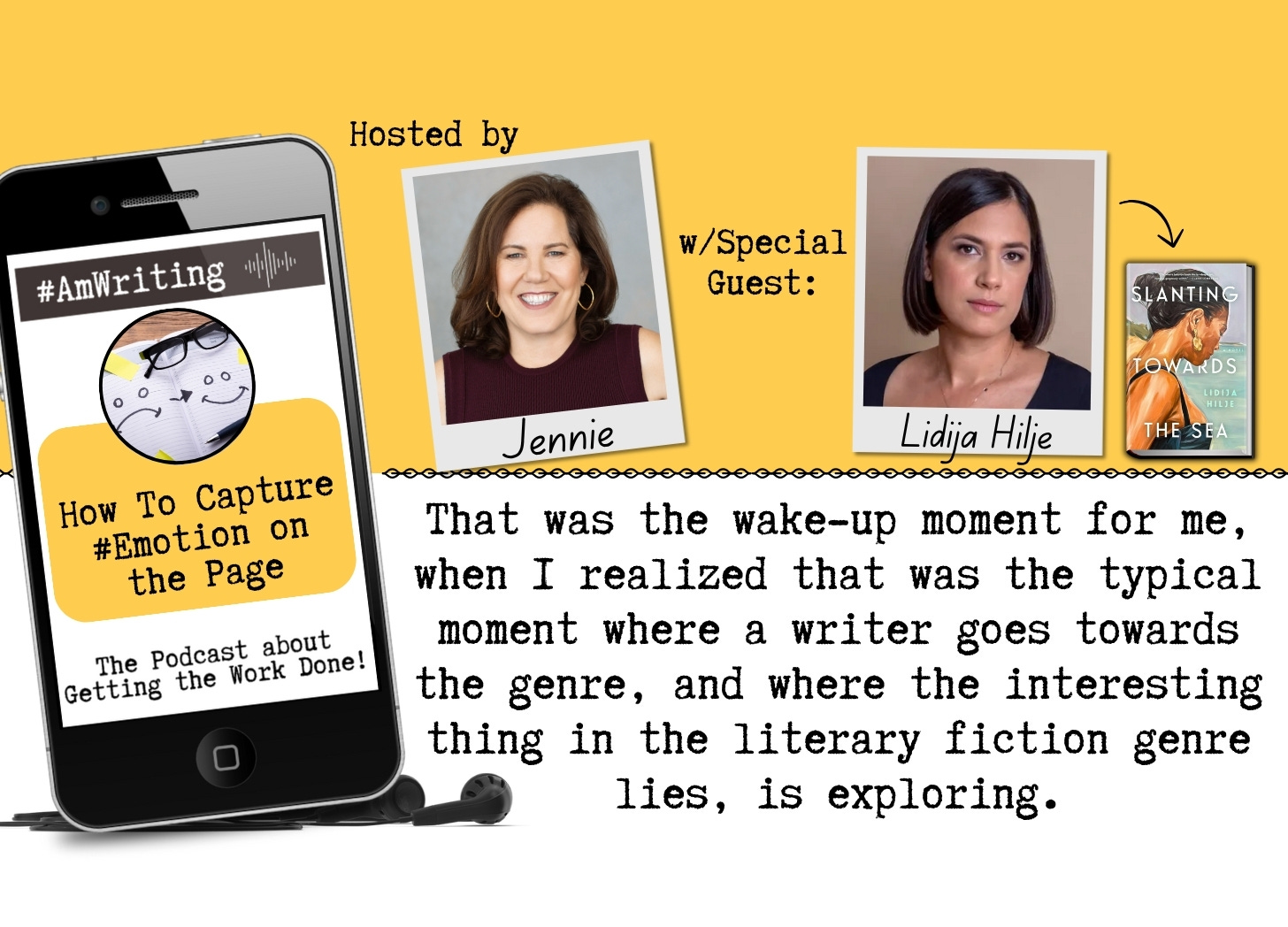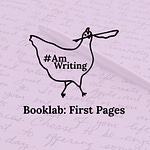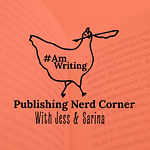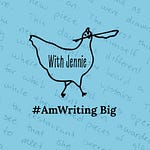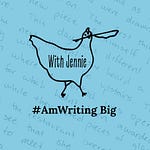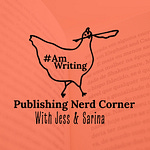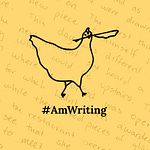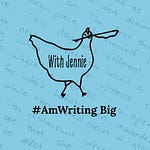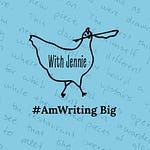One of the writing skills I am asked about the most is, “How do I get emotion on the page?” People ask this no matter what genre they are writing, because no one wants to produce a manuscript that is flat and unengaging. Emotion is the key, but figuring out how to inspire your reader to feel something is a tricky thing to learn and an even trickier thing to master.
In her debut novel, Slanting Towards the Sea (Simon & Schuster, July 2025), Lidija Hilje has mastered it. The story feels so raw and so real—and English is not even Lidija’s first language! It’s a remarkable achievement.
I’m excited to speak with Lidija about her path to publication and how she figured out how to get the emotion of her characters onto the page.
Links from the Pod:
Guide on Literary Fiction from Lidija
Lidija’s website: www.lidijahilje.com
Author Accelerator book coaches Barbara Boyd and Nita Collins
Hey everyone, it's Jenny Nash. This episode happens to feature an Author Accelerator book coach. Author Accelerator is the company I founded more than 10 years ago to lead the emerging book coaching industry. If you've been curious about what it takes to become a successful book coach, which is to say, someone who makes money, meaning, and joy out of serving writers, I've just created a bunch of great content to help you learn more. You can access it all by going to bookcoaches.com/waitlist. We'll be enrolling a new cohort of students in our certification program in October, so now's a perfect time to learn more and start making plans for a whole new career.
Transcript below!
EPISODE 456 - TRANSCRIPT
Jennie Nash
Hey everyone, it's Jennie Nash. This episode happens to feature an Author Accelerator book coach. Author Accelerator is the company I founded more than 10 years ago to lead the emerging book coaching industry. If you've been curious about what it takes to become a successful book coach—which is to say, someone who makes money, meaning, and joy out of serving writers—I've just created a bunch of great content to help you learn more. You can access it all by going to bookcoaches.com/waitlist. That's bookcoaches.com/waitlist. We'll be enrolling a new cohort of students in our certification program in October, so now’s a perfect time to learn more and start making plans for a whole new career.
Multiple Speakers:
Is it recording? Now it's recording, yay. Go ahead. This is the part where I stare blankly at the microphone. I don't remember what I'm supposed to be doing. Alright, let's start over. Awkward pause. I'm going to rustle some papers. Okay, now one, two, three.
Jennie Nash
Hey writers, I'm Jennie Nash, and this is the Hashtag AmWriting podcast, the place where we talk about writing all the things; short things, long things, fiction, nonfiction, pitches, and proposals. Today I'm talking with Lidija Hilje, the author of the novel Slanting Towards the Sea. And what we're talking about is how to capture emotion on the page—the most elusive thing in the entire writing universe. Lidija lives in Croatia. She's a former lawyer who I know because she became a book coach through Author Accelerator. This is her first novel, and it's something else. As a longtime book coach, it’s really hard for me to read for pleasure anymore, because it's so hard not to see the writer at work and the seams of the creation. But Slanting Towards the Sea—I saw none of that. I fell wholly into the story and became lost in it; the olive trees and the sea, the pain of these people and this love triangle, and also just the love that they had for life and each other. It's almost unbearably raw—the way life itself can feel sometimes. And yet, since I know Lidija and her story to becoming a writer, I also know how much work it took to create this feeling and emotion. I'm so excited to speak with Lidija today, and so excited for people to hear about her and her story. So welcome, Lidija. Thanks for coming onto the podcast.
Lidija Hilje
Thank you so much for having me and for this incredible introduction. I'm so honored.
Jennie Nash
Well, before we get started, I want to read the jacket copy for Slanting Towards the Sea, so that our listeners can hear the bones of the story that you wrote. Is that okay if I read it for our listeners?
Lidija Hilje
Absolutely. Thank you so much.
Jennie Nash
Okay.
Ivona divorced the love of her life, Vlaho, a decade ago. They met as students at the turn of the millennium, when newly democratic Croatia was alive with hope and promise. But the challenges of living in a burgeoning country extinguished Ivona’s dreams one after another—and a devastating secret forced her to set him free. Now Vlaho is remarried and a proud father of two, while Ivona’s life has taken a downward turn. In her thirties, she has returned to her childhood home to care for her ailing father. Bewildered by life’s disappointments, she finds solace in reconnecting with Vlaho and is welcomed into his family by his spirited wife, Marina. But when a new man enters Ivona’s life, the carefully cultivated dynamic between the three is disrupted, forcing a reckoning for all involved. Set against the mesmerizing Croatian coastline, Slanting Towards the Sea is a cinematic, emotionally searing debut about the fragile nature of potential and the transcendence of love.
That’s it! What a—what a—what a summary, right? So I want to start by talking about the genre of this book, Lidija. As a book coach, you specialize in helping people write literary fiction. And you're extremely articulate about defining exactly what it is. And I'd like to just start there, by talking about how you see this novel, where it's positioned and, um, and your sense of it in, as a—in the genre, um, categories, if you will. Um, and I'll share with our listeners before you answer that English is not your first language—which is something we're going to talk about from a writing perspective, but just from a listening perspective, to give people some context for that. So let's talk about—let's talk about genre.
Lidija Hilje
Yeah, well, genre is one of my favorite topics as a book coach, and so naturally it is something I love talking about. So the first book I ever wrote, which is now safely shelved in a drawer at the bottom of a drawer, was women's fiction. And the reason why it was women's fiction was that because I was learning how to write, I was learning how to weave a story together. And in doing so, I was trying to find some commonalities in stories—like how stories work, how you develop them, how you develop a character arc, how you wrap it up towards the end. And—but my intention always was to write literary. I was just not very good at doing it. And so I kind of—like all the feedback that I got throughout my—from developmental editors—it was like geared towards kind of channeling the book towards women's fiction. And this is something that really still strikes me as a book coach: how different it is to coach literary fiction as opposed to genre fiction, which is more formulaic. So basically, that first book is safely shelved. And when I started writing this book, I was working really hard at trying to make it not be formulaic. And actually, one of the book coaches from our community helped me. I had a conversation with Barbara Boyd where I outlined my story for her, and she said there was this moment where I kind of did something in my outline…what could basically be called a cop-out—so that… I killed a character, basically, so that the…you know, that the book would close neatly, right? And so she called me out on it and said—because I talked to her specifically because she coaches literary fiction but didn't like or coach women's fiction—and I thought that perspective was something I needed. And so she said, "Why are you killing that character?” And that was the wake-up moment for me, because that was the moment when I realized that in doing so, that was the typical moment where a writer kind of goes toward the genre. And where the interesting thing in the literary fiction genre lies is exploring, you know, what happens when you don't kill the character—when you don't take the easy way out. And so, genre-wise, what I, you know—I run a book club for writers, and we read a lot of literary fiction. And so, I was constantly trying to figure out, like, what is it about these books that, you know, define genre? And in studying these books, there are several things, and I could talk about this, I guess, for centuries, but I'll try to...
Jennie Nash
I—I love it. Let's do it.
Lidija Hilje
So basically, in literary fiction, there are many things that genre fiction also has. There are themes, there are character arcs—you know, a character might grow, though not necessarily. But basically, it's much less clear than in genre fiction. In genre fiction, for instance, you have—especially in women's fiction—you will have a woman who is shy and then she becomes confident toward the end. Or you have a horrible, you know, self-obsessed character who learns their lesson toward the end of the book. It's really clear-cut. The reader can latch on to what the problem is without thinking too much about it. And literary fiction does the opposite. It fans out a little bit. It touches on many different things that kind of seem unrelated, but they are related. And this is a problem in writing it, as well as coaching it, because as a coach or as a writer, you have to be aware of all these things. You have to beware of how these things tie together so that you have the idea of this through line that goes throughout the story, whereas the reader might not be catching on as fast but does have the confidence that you, as the writer, are going to get them there, if that makes sense.
Jennie Nash
Oh, it makes so much sense. So when you were working on—I actually remember reading some opening, maybe the opening chapters of the novel that has been shelved. When I read those pages, they struck me as if they had that feeling of literary fiction. Was that your intention with that novel as well?
Lidija Hilje
Yes, it was. It was just that I was unable to... I came to writing late. I mean, I was always a writer in the sense that I was always writing something, but I came to writing fiction and specifically books very late. It was 2017 when I started writing that book in Croatian. And the first, you know, contact with any craft or writing happened in 2019 when I finished the draft and I translated that book into English, and I started looking for ways of pub... you know, publishing that book and realized that the first draft is not the last draft. Like that was the—like it was—sometimes it's so funny to think like how recently I didn't know anything about publishing or writing at all. So basically, I did want that book to be literary fiction. I always wanted to do, you know, to write the type of fiction that I wrote in Slanting [Slanting Towards the Sea], and obviously I hope to, you know, hone my craft in the future, but it wasn't—it wasn’t on that level. And the first developmental editor that I worked with in 2019, she was giving me all the logical advice that you can give someone, which is... hone the character arc you are telling here, show, you know, all those things that we tell our clients when we work with them as book coaches. But what it did is it completely stripped the literary part from it, and it made me write in scene, which is not how literary fiction is written. You know, like, one of the differences between commercial fiction and literary fiction is that you don't necessarily write in scenes. You write in summaries, and you write in postcards, which is the type of a scene that goes deeper instead of forward, if that makes sense. So you're not kind of—nothing changes for the protagonist, the protagonist doesn't realize anything, they don't decide on a new course of action, nothing new happens, but the reader's understanding of the character happens. And this is also true when you're looking at the character arc on the, you know, scope of the whole novel. Like in literary fiction, it will often be that, you know, that the character doesn't change much in terms of, like what I said before—she was shy and she stopped being shy, right? It will just be that the reader's understanding of the character deepens. And so my first book was an attempt at literary fiction, but it was not an execution. You know, the execution didn't really match that, and I feel like the advice that I got from my early developmental editor was just kind of trying to put me in the confines of commercial fiction. Which is... you know... understandable. You know, and I'm great— I'm even, like, today—I'm grateful for it because you first have to learn how to walk and then you can run, right? So I did have to go through the process of learning how to write a good scene, of learning how not to tell, of learning how to hide the seams that you—that you were talking about—you need to hide your fingerprints as a writer. And that was my learning book. I learned a lot from writing it, but by the time I was done with it, it was not—it didn’t—it was not a bad book, and I got a lot of full requests for it, but it was not—it did not end up being what I had hoped for it.
Jennie Nash
So, in 2017, when you started that book, you said you came to writing late. Do you mind sharing where you were in your life, if you want to share your age or what you were doing in your life, just to give us some context for what you mean by that—by coming to it late?
Lidija Hilje
So yeah, so 2017 was one of the hardest years in my life, I think. I think it's just the moment where I was around 35, I think. I would have to do the math, but mid-30s. And I had just been fired for the second time after my second maternity leave. And, you know jobs in my profession, which is—I was an attorney—were scarce, and I opened my own law firm. And I sat there in my law office, you know, a woman working as an attorney in Zadar, Croatia. It was not, you know, I was not having like flocks of clients, you know, going through the door. And you had to sit there from 8am to 4pm, which is our work time. And I had, um, ii had um... I started writing basically to pass the time. And I was writing just the scenes that I was interested in that, you know, brought me joy and then I, you know, wrote the intermittent scene, and the book grew and grew. And by the time I had finished it, which was a year and a half later, you know, it became... It just became a thing that I was—it took over it took over my whole life. I could not, you know and financially it was a difficult time for us as well. We had reached—my husband and I, like I said mid 30’s—and we had kind of peaked career wise here in Croatia. So basically, what people don't understand about Croatia is that even if you're a brain surgeon, or if you're a lawyer, or if you're a programmer—like my husband—the money you make is not much more than the average wage. And so, you know, we were at the top of our game professionally, but not earning enough to make ends meet. And so we had started thinking about moving to Ireland basically, which is the, you know, IT hub for the... in Europe. And in thinking about it, I was sitting in my law office and I was basically crying my eyes out thinking if I go there, I'm going to be stripped of my identity as an attorney. I had been working toward that for basically 15, 20 years. And in trying to get over that pain of working towards something that in Ireland, it's not going to mean anything because, you know, the legal system is so very different and my use of language was not, you know, it's still not really good. Like professional English is not the same as this spoken English, you know, everyday English. And so, in kind of trying to accept that we are going to move and I'm going to be stripped of that identity as a lawyer, I was, in a way, you know, to make it easier for myself, I started accepting all the things that I didn't want to look at, which is I hated my job.
Jennie Nash
Right, right.
Lidija Hilje
I loved being in a courtroom, like that was a good part of it. But everything else, you know, the intellectual part of it, like thinking about law, applying law to a certain case was interesting to me. But everything else was horrible. And so, once I accepted that, and my husband got a job, you know, like working for... as a freelancer for an outside company, and we could stay in Croatia, I was like, "And what am I going to do now? I can't go back to being a lawyer." And so, because his wage was a little bit more than, you know, for the first time, he could afford for me to go, you know, to take a year off and to see what I could do. And so, for a while, I interned at a foreign literary agency—that didn't go anywhere. Then I wrote, you know, a copy for a startup that didn't end up, you know, paying me. So that was kind of like—I was at the end of my rope by the, you know, toward the end of that year. And then I encountered the Author Accelerator program for book coaches, and I had during that year I had connected with writers and I have realized that basically the legal knowledge really translates beautifully into book coaching. So it was kind of like, you know, working on a story, or if you're working on a case, or working on a book, it's kind of a similar thing, similar logic applies. And so it was a… you—you know, it was, I know I'm mixing a little bit the books coaching and legal and, you know, writing careers...
Jennie Nash
No, it's fascinating.
Lidija Hilje
But they are so intertwined in my life, yeah.
Jennie Nash
I mean, it's fascinating the way that you trained yourself on story, basically. And I remember the conversation when you approached Author Accelerator, because you were nervous about being able to meet the requirements of our program because of your language—that English is not your first language. But I, I mean, we have a system whereby it's you try it, you know, if—if you'd meet the requirements, you meet them and if you don't, you don't. And it struck me that your grasp of story was so profound. That I didn’t know... you know, it was one conversation about your grasp of the written language. But, um, you were... you were very nervous about your ability to do the work of book coaching in another language. And it's just interesting from where we sit now, so I want to circle back to the book itself and the novel and what you accomplished in it, because it really does have the thing that so many writers are always trying to do, and they talk about it—it is so elusive. Which is this capturing this feeling, emotion, letting the reader sit in the mirror of what those characters are feeling, and you feel it your own self, and that it, you know, when it, when it works, it's, it's like a magic trick. And it strikes me that you came at that very deliberately. It was not accidental. Is that fair to say? Would you believe that?
Lidija Hilje
I think I always wanted to write about... I always wanted to write quiet stories. And for quiet stories to work, you have to make the quiet things loud in a way. And the loud things are the emotions. And so yes, yes, it was always my goal. I was not always good at it... in writing emotion. But yeah, like during that process of writing that first book, I struggled with it a lot. I struggled with what I guess happens a lot of the time when we are writing is that we're trying very hard for the reader to see things the way we are seeing them. And this counter-intuitively causes the very reverse effect. You know the reader—is the more you're trying to make them listen to you, the more you're trying to, you know, impose your view of things on them, the more they resist. So the trick is basically, and I'll make it sound very easy, it's not easy at all to execute, but the trick is to kind of, you know, to try to find a way and to deliver that emotion without judgment. Like, this is what I'm feeling, or this is what my character is feeling. And not trying to explain it, not trying to get compassion, not trying to get the reader to feel anything. Like, you're just putting things out in the ether, and you're allowing the reader to do their own math. And this is something you can do in literary fiction, which is more open-ended, right? And the readers of genre fiction, I do need more hand-holding in that sense that they will not maybe work as hard as the literary reader. So yeah, I did work very hard. And, you know, the first book, the “shelved” book, really got to a point where I couldn't do that work anymore. But when I started Slanting [Slanting Towards the Sea]… the literally... the first scene in Slanting [Slanting Towards the Sea], came out the way it did. Like that's…
Jennie Nash
Oh wow!
Lidija Hilje
It didn't change. We had this meeting of writing friends and one of them said, let's exchange, like, let's read 500 new words and I was not working on anything. I had been focusing on book coaching at that moment—that was 2021. And I went to the moment in that room when she is thinking about her ex-husband, you know, when the protagonist is thinking about her ex-husband, and it just came out the way it is. I don't think I changed basically more than three words since that scene came out the way it is. And so...
Jennie Nash
Oh, that's amazing. I want to... I want to read some of the lines from that opening scene, if I can, to give the readers... I mean the listeners a sense of what we're talking about. So here's how Slanting Towards the Sea begins.
I open his socials and sift through his photos. I know their sequence like I know the palm of my hand. Better even, because I can never memorize what my palm looks like, how the life line twirls into the love line, how it begins tight and uniform, but then turns ropey. It scares me to look at it, to trace the lines, to see where they might lead me in years to come. But I know Vlaho’s photos by heart.
And it goes on from there. It's, it's just, it's so haunting. And, and the whole, the whole novel is, is that, has that feel to it. So when did you, when did you know that with this story you had it? You knew with the other one that you couldn't get it back, or that it wasn't going to happen. When did you begin? Was it after the sharing of that scene where you thought, oh, I've got this?
Lidija Hilje
I knew that I could write a scene, but there's a difference, you know, a postcard. I would call this a postcard. This is the typical example of a postcard, a scene where nothing changes for the protagonist and she doesn't understand anything new, but it kind of deepens the reader's understanding of, you know, her situation. So I knew I could write it, which is something I struggled with, with the first book, but I—there's a long road from doing one good postcard and then, you know, writing an entire book, which in literary fiction you have this additional, you know, challenge. You do a ratio basically of normal scenes and summaries, and postcards, and you have to maintain that ratio throughout the book. So, um, yeah for the... relatively early in the book I had submitted that first scene for some competitions. And I got great feedback. It won a critique match, writing a competition in the literary fiction category. And it was long listed in the BPA Pitch Prize in the UK. So I knew that... you know... you know... that the opening of the book was working. So that was good. But from then on, it was such a struggle, because you read the book, and so you know, it has dual timelines; it spans 20 years. I was struggling so bad trying to figure out whether I should do, you know, the past in flashbacks? Whether I should alternate timelines? How do I set this massive story up, which has, you know, the past, and, you know, the present, which happens over a span of... I don't know... five or six months in the present timeline. So I struggled with it a lot. But the thing that I struggled with the most was accountability. So basically, for the first year and a half—for the first year—I wrote, I think, maybe 150 pages. They were not very well set up. I was unsure of them, and I would always push the book backwards to work on client stories. And so what really changed the game for me was when I—I have this program that I run in summertime and one of our book coaches was in that program, Nita Collins. And after the program ended, we partnered up. And so she was my accountability—you know partner, as well as…you know, feedback giver and cheerleader and all the things. And so, you know, I still struggled with how to set up all the things and how to build up the narrative, which I think is really hard for people to coach literary fiction, because you can basically only offer solutions that are kind of geared towards tropey, right? So the author really does have to do all the work, in that sense, but she was absolutely instrumental in terms of me getting the pages down and just seeing if the pages hit the mark or didn't, why they didn't, you know, talking to her, just voicing, talking about the book. And so this went on for a year and within one year I had a full first draft and from then on it was a quick revising process and within three months I had three agent offers. So it was a fast process from then on, from having the first draft, to getting an agent.
Jennie Nash
Well, big shout out to Nita Collins and the Author Accelerator community. I love that a connection happened for you guys. It's really beautiful the way you describe it. So can you explain why you decided it was time to go out to agents? With the first book you decided... this is not going to go anywhere. I'm putting it aside. And with this one, very soon after you finished the first draft, you decided to pitch. What was that decision-making process like for you?
Lidija Hilje
So I want to be completely honest. I didn't shelve the first project because I thought it was not, I could not get it to a level. I was convinced that it was on a level, and I had pitched it, but I had been rejected over 100 times. So basically the industry decided for me that it wasn't going to happen. And one of the things that was really hard for me in that first book is that I set it in the US, which I've never been to the US. So it made it very difficult, but I felt like if I set the book in Croatia, I would, like the cultural perspective would overpower the quiet narrative. And I thought that I couldn't do it. And so I, you know, in Slanting [Slanting Towards the Sea], this is the base of the book. Like, it's, you know, I've found a way to weave the cultural perspective as seamlessly as I could. But the pitching process—I basically... I had the first draft done when I had decided to pitch the book. It was a little bit—to be honest, I was a little bit hasty. I had applied for The Muse & the Marketplace conversation with agents. You could...
Jennie Nash
Like the speed dating.
Lidija Hilje
Yeah, like the speed dating. And so I purchased a few tickets for that. And this was done for two reasons. The first one was to, you know; give myself a goal to work towards—to kind of make it all go faster. And the second goal was to see how the industry looks at this. And if there are any issues that they have with the, you know, with the book or with how it's set up, I would rather know sooner than later. And so, because they were reading not just the pages—they were reading, like, 10 pages, a synopsis, and a query letter—which I would also wholeheartedly recommend writing during the writing phase. Preferably, you know, toward the end of the first draft, you would have to do the pitching materials, because they inform so much of... they make you really focus on what the book is about and kind of drawing out the themes and the plot and kind of parsing all those things out. So I told myself: if I go there, and if I get some, you know the best thing that could happen is I could get some full requests. The worst thing that could happen was they will tell me that I'm not there, that my writing is not there, and that the and/or that the book doesn't hold together. And so what happened is, I was... I had just finished my first draft, but I knew that the ending wasn't right. I had the wrong ending. So I knew I had to rewrite the last third of the book, at least. And I went on to that conference, and out of five agents I had talked to, four had requested a full manuscript—toward, like, when I had it. So it was a huge, you know, confidence builder, and that summer I really, really—I can't, it's really amazing what happened—I just, I was so energized, and I just, you know, I don't know, it's like a visit from the muse, even though it's just work. But it felt—I felt very inspired, and I completely rewrote the book, basically, and that gave it the ending that it needed to have, which was also one of the fights against the genre confinements which I had kind of put on myself. So yeah, so that was the decision that I should be doing that, and at the same time, I wanted to be, like, 100% sure that when I sent the manuscript out, it would be finished—that it would be the best that I can make it by myself, you know, and, you know, for Nita to read it, for a couple of beta readers that I've really trusted—and they have the same taste in books that I do—to read it. And only with that feedback was I really ready to send it out to agents.
Jennie Nash
So—the—we'll get to what happened with the agents in a minute. But I want to return to something that you said about the culture of Croatia and the role that it has in the story, and you called it foundational. And it really feels both the setting of the country, meaning the land, there's... there's a lot you write about, um, the sea, and the food that comes from the sea, and the winds that travel, um, both on the sea and on the land, and there's olive trees that play a large part in this story. So there is a lot about the country itself, and then there's, there is a lot about the, the culture and the, the changing bureaucracies and politics and things that are going on. And it's interesting that you spoke in your own life about contemplating leaving the country, because your characters at some key points, contemplate leaving as well. So there's—there was very much about the constraints of the world of this place, and that's part of what the, you know, it's interesting that you talk about it as your concern was that it would overwhelm the story, but it's part of, for me, what the container in which that emotion happened. It felt not separate from the story, but a really critical component of it. The way these characters lived on the land, and in this place, and what that allowed them to do,—or to be—or not be and how they bumped up against it. It was... It's really like you have a historian's grasp of that, your world, was that something you were conscious of while you were writing as well?
Lidija Hilje
Yes. I was always worried about writing, you know, a Croatian perspective. Like that was always a big concern for me because I, you know, when you're looking at literature and what interests readers, it's either, you know, the book set in the UK and US, which is kind of the clear narrative, it doesn't, it's, it's a pervasive culture that we all understand when it kind of becomes invisible, or, you know, a background noise, it doesn't really affect the narrative. Whereas the other interesting things that readers, when they want to travel somewhere, they will want to go somewhere exotic, you know, whether it's Nigeria or, you know, Eastern Asia, Japan, China, you know? So it felt like Croatia is different, but not different enough, you know? And so it's, it's kind of like almost like it makes the reader constantly forget that they're in Croatia, while at the same time kind of jarring them when you remind them of the differences, and this was one of the, one of the, you know, key points of my work with Nita, was when she would just notice things like, what is, you know, what is the, why are there, there are no dividers in the hospital between the beds? And it's just like... and now I realize that I have to explain how our hospitals look like, and it's not like yours. Or the difference in the tides, which in America are, you know, over, over, I don't know how many feet, and in Croatia they're just, um, and we talked about it when you were here in Zadar as well. So it's just like, it's very similar to America, but not quite. And that was very frustrating at times to try to depict. But on the other hand, in writing Ivona, I wanted to, I feel, I have felt and still feel a lot of frustration with my country. I love it, but I have been planning, like there have been multiple, you know, periods in my life when I had hoped to leave, just because how frustrating it is to live here sometimes with the bureaucracy and just the way the mentality is here and everything. So basically in writing her story, I wanted to air out those grievances in a way. To give them voice, to examine them, to see what they are, and like everything, you know, it's not black or white, it's the way we are here, and it's also the way I am, you know. I notice this when I interact with people from other areas, and they say that us Croats and, you know, Balkan people are very, you know, always like, always complaining about something, which is true, we are. And so, yeah, so it's difficult. It's difficult because I wanted that to be a part of the story. And at the same time, you know, there, you know, there is the possibility of the American reader who doesn't see that it's a part of the culture here, basically. That they could look at Ivona, and say, you know, why does she just not snap out of it?
Jennie Nash
Hmm…
Lidija Hilje
And, you know, it's almost like saying to me to snap out of the issues that I had as I was like, trying, you know, like banging my head against the wall, trying to get my career going, and t's not working. Like whatever you're, you're trying—like it's easier for me to make it in the US, never having set a foot there, than in Croatia.
Jennie Nash
Right.
Lidija Hilje
I mean, my book is being published in the US; it's still not being published in Croatia, just for the record. So it's really hard, and it's really hard to make that a part of the book, but not have it, like, weigh the book all the way down. So it was a process. It's like all the things you try and miss and, you know, sometimes you go overboard, and then you have to pull back, and you have to be careful not to go too deeply into your own experience and just feel that the character is separate from you, and obviously she has some different issues than I had and a different occupation, but a lot of her grievances are mine as well.
Jennie Nash
Well, that yearning and, can… I guess confusion really does come across. The how will I, how will I live? How will I love? How will I spend my days? I mean, these are the questions of our life, and they're the questions of this character in—as she goes through what she's experiencing. That they're, they're both mundane questions and, and, you know, the most profound. And, and the way you capture it... I mean, that was just to circle back to my initial idea of talking about how to capture emotion on the page, you know, which is the work of a novel. That's what it's for. That's its point. And it's just so hard to do. And you just did it on so many levels in a language that's not your first. And it really is just extraordinary and moving. And in preparing to talk to you today, I read a lot of the early reviews—people who got advanced readers copies, 'cause the book comes out in July, 2025, and we're speaking a few months before that time. So it's not fully out in the world, but it's enough that, um, I can see that reaction rippling through the readers and, and certainly through the, um, professional, um, colleagues and, you know, who've blurbed the book. But this idea of it being—the word people kept using was “moving.” And there was a lot of words like “tender” and “haunting,” you know, people really felt what it sounds like you intended them to feel. So how, from where you sit now, how does that—how does it feel to have gotten that feedback from some of the writers you admire? And to know that it did… it works doing what you want it to do? How does that feel?
Lidija Hilje
Oh, it's, it's impossible to talk about that because I guess I'm typically Croatian in the way that it's easier for me to sit in my failures than to sit in my successes. So it's absolutely incredible. I mean, when you get a blurb from Claire Lombardo, who is, you know, I absolutely adore her books and I think she's insanely talented, you know, and for her, you know, she used the words “humane,” and that really—I was so moved by that. So my… kind of my goal is for, for people to see the humanity in these, these characters. And so it's really, it's really amazing. It's, it's beyond, you know, some of the, you know, I got really great blurbs from authors I really, really deeply admire: Thao Thai, Nguyễn Phan Quế Mai, Amy Lin, and Madeline Lucas, and as well, you know, Claire Lombardo, whom I mentioned. It's really incredible. It's so life affirming for me, you know, to be able to do that. But like I said, it's always, you know, when I'm reading the reviews, which I probably shouldn't be doing, I'm always focusing on the few that are not—just not feeling it. And then I have to remind myself it’s not—this is not a book for anyone, for just everyone. And it's, you know, it's a journey. It's still, like you said, early days. I'm learning to be an author, to grow an even thicker skin in that sense. But yeah, it did feel great to get those beautiful reviews. And I'm so grateful to them for reading and donating their time to me.
Jennie Nash
I mean, it's so not fair what I want to say. It's so not fair. But I want to ask anyway. Quite a few of the reviews said they can't wait for your next book, which, you know, it's like you're not a machine. You've just done this one. But are you thinking about that? Are you… do you have thoughts about that?
Lidija Hilje
Yeah, I am trying to work on my new book. But, you know, I'm admiring the writers who put out a book a year. That's definitely not going to be me. There's an insane amount of work in putting the book out. You know, there's invisible work that goes behind the screen, you know, that people don't see, but it’s happening and it takes up a lot of time. And there's also this emotional, you know, it's, it's—it’s difficult sitting in, like… you're trying to make this your career. You wrote your heart on the paper and you're offering it to the world. And now you're suspended in this period when you put it out and you're waiting to see how it's received, whether someone tramples on it or whether it's upheld. And so it's a difficult, emotionally difficult place to be in, and I'm one of those writers who struggle to create when I'm not, you know, when I'm feeling… when I'm feeling stressed. So work on my second novel is going slowly. I’ve gotten to page 100, but then I realized it needed, you know, I needed to make some changes, so I'm back to page 30. So it's a, you know, it's a—it's a process. I think, you know, writing literary fiction takes time. It takes self-examination; it takes a lot of reading of other people who have done it successfully—the type of novel that you're trying to execute. So, so yeah, I'm trying to work on it, but, um, but it may, it may be a while.
Jennie Nash
All right. I know—that's why it wasn't fair to even ask. Um, so back to… I just want to pick up the story back to—you got the three or the four, um, agent requests, and you, you finished the novel, and, um, and you pitched to them. Can you just share what all unfolded? Because… it was pretty extraordinary.
Lidija Hilje
So, basically, what happened was I didn't pitch all the four agents that had requested the pages. I had the first querying experience, which is what I said—you know 100 rejections. I took a long, hard look at it and realized that many of the time I was querying the wrong agents, genre-wise, which, you know, I was not aware of at the time. So a lot of those rejections were basically because I was querying a women's fiction book to literary agents. And that was one thing. And the other thing is… I was pretty, you know, unselective with whom I was querying the first time around. And the second time around, I was really intentional with the type of agent and their reputation and the connections within the industry—you know, just much more aware, approaching it much more professionally in terms of, you know, just wanting a good fit that would actually be able to do something for me, you know, to sell the book. And so a friend who had, you know, she had given me a referral to her agent—that didn't pan out. I gave that agent a month, an exclusive. And when that didn't pan out, I basically sent the query to my now agent, Abby Walters, at CAA. And, you know, it was a form on the website. I didn't even write her an email. It was just a form. So I didn't think that anyone would read it, basically. And I got—quickly I got like five or six requests, right out of the gate, those maybe first 10 days. And by the end of the second week I had gotten an offer of representation from Abby. And I followed up with the rest of the agents. The total, uh, the total number of, uh, full requests ended up being, I think, maybe nine out of 20, 25 queries. And, uh, I got three offers of representation, um, from fantastic agents. And, uh, deciding was hell. I was—I was—it was horrible to be in a position where you had to say no to an agent that you admire and that you would genuinely love to work with, but you know, for some reasons I chose Abby and I'm really happy with working with her. She's fantastic. I—I, you know, love her to death. And yeah, so that was the story of getting an agent. It was—it was—it was pretty quick and painless, I have to say, the second time around.
Jennie Nash
Right, from 100 rejections with the first one to—to nine full requests and three offers on—on this one, that's an extraordinary swing, for sure. And I love the—the way that you approached it the second time with that intention. It just says everything about the kind of person and writer you are, and the book landed with Simon & Schuster and will be coming out soon, and I can't wait to share it with our listeners. It's a beautiful, beautiful novel. I just—I cherished reading every page, and we had the really great good fortune of my taking a vacation to Croatia and coming to your town and meeting you and walking through the town with you, and I treasure that for so many reasons. But having read the book, I felt like I could taste it and see it in a really special way, having had a tour of your city with you. So that, for me,
was just a special—a special part of it too.
Lidija Hilje
Thank you so much, Jennie. But actually, you kind of were a part of that, because when I thought about the places where Ivona would take a seer to, you know, to see, I had our tour in my—you know, on my mind, because I was thinking, like, what would she show someone who's from another place? Like, where would she take him? And it wouldn't be the things I showed you. I mean, I showed you some of the big things that you have to see when you're here. But I took you to the places that are more intimate to me, like more personally important to me.
Jennie Nash
Yeah.
Lidija Hilje
And so this is—this is what's behind the scene where she shows him her school. And, you know, so, yeah… you know, real life.
Jennie Nash
Oh, that's amazing. That's amazing. Well, yeah, I did get to see where you went to school and where the law office was. And—and one of the things that's really stayed with me was we went to a bookstore and it… Um, and it—just knowing what your life in books has been, Lidija, and how you've studied them and how you've worked to become a writer of the caliber that you are. And that bookstore was so small, and it had mostly books in Croatian, and it was not anything like the kind of bookstore that one would think would spark a major literary career. And it… that just has stuck with me, because you—you made your own bookstore, right? You found your own literary community. You found your own career and way, and it's just been a joy to watch and to cheer you on. And thank you for coming and talking with us today.
Lidija Hilje
Thank you so much for having me, and all the encouragement over the years. I'm really grateful for that as well.
Jennie Nash
All right, well, until next time, for our listeners—keep your butt in the chair and your head in the game.
Jess Lahey
The Hashtag AmWriting podcast is produced by Andrew Perella. Our intro music, aptly titled Unemployed Monday was written and played by Max Cohen. Andrew and Max were paid for their time and their creative output, because everyone deserves to be paid for their work.


